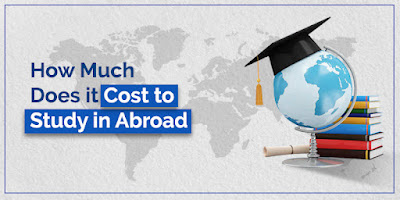5 Ways to Gain Work Experience While Studying Abroad
5
Ways to Gain Work Experience While Studying
Abroad
Taking the time to gain work experience while studying abroad is as
important as going to classes or going out with friends!
With the many options listed below, salary can be beneficial in covering
a portion of your expenses, so why not take advantage of these opportunities to
improve your resume and earn some extra money?
Adding a part-time job to your resume will make it more attractive to
employers because they'll realize you have the confidence to learn and adapt.
1. Part Time
A part-time job is a great way to work abroad, improve your soft skills,
move into the working world and of course cover some of your living expenses.
2. Internship & Co-op
Another way to gain work experience while studying abroad is through
internships or collaborations. They are a form of learning outside the
classroom, where you are employed while you study abroad and apply theory into
practice.
By now, you are probably wondering what is a cooperative? . Usually, you
can get a job through university and most of them are paid.
You get a chance to understand the working world from a professional
perspective and at the same time earn extra money. For example, if you are
taking a co-op program in computer science, one work period might include
working as an assistant at a software development company. Studies show that
students are more likely to find full-time employment after graduation than
non-cooperatives.
The main difference between internships and co-ops is that co-ops are
longer, lasting 35 or 40 hours, and more intensive with more days, unlike
interns, who are more than 10 or more days in just two or three weeks. 12 hours
work. Day. Internship programs can offer more flexibility for students because
they are shorter and can be paid or unpaid.
When researching your programs abroad, be sure to contact universities to
ask about cooperative education options. They will help you find programs and
then later, find jobs.
3. Volunteer
Employers love to see volunteer experience on your resume because it
shows not only that you have the right skills but also a willingness to work
without compensation. For example, if you are studying social work or law, this
would be a great option to add to your CV.
While volunteering abroad, you can converge people and get their contact
information for future job recommendations, or one day they may even become
your employer.
4. Summer Jobs & Winter Vacation
During the summer holidays, when you are not enrolled in any classes,
most countries allow you to work full time for 3 months as an international
student to gain both experience and money.
Winter vacation usually lasts three weeks from early/mid December to
early January, but can vary by country.
The great thing about summer jobs is that you can fully focus on the job,
unlike part-time, where you have to work and study at the same time. Working
during your study abroad holidays will help
you get closer to your destination. Country's culture and working environment.
This is especially beneficial if you are planning to live and live in the
country permanently as you will already have work experience and knowledge
about the environment.
5. Freelance
Being a freelancer is a flexible and well-paying way to gain work
experience while studying abroad! .You can
negotiate payment terms, deadlines, content of the work, and you have the right
to decline or accept it depending on what you want!
In addition to finding clients, you can also contract with companies, or
agencies, that require their services, such as article and essay writing or
photography. Making all of those decisions will make you an ideal candidate for
many employers after graduation as you become an expert. On important skills
like decision making, communicating, problem solving, negotiating, and many
more.







Comments
Post a Comment